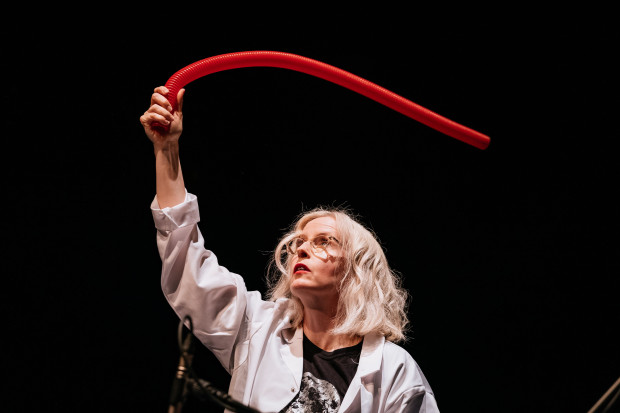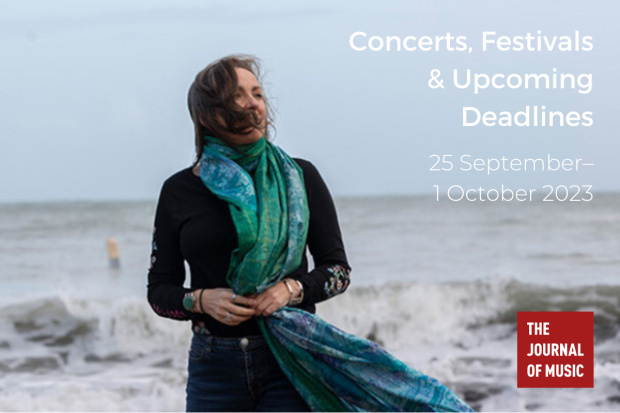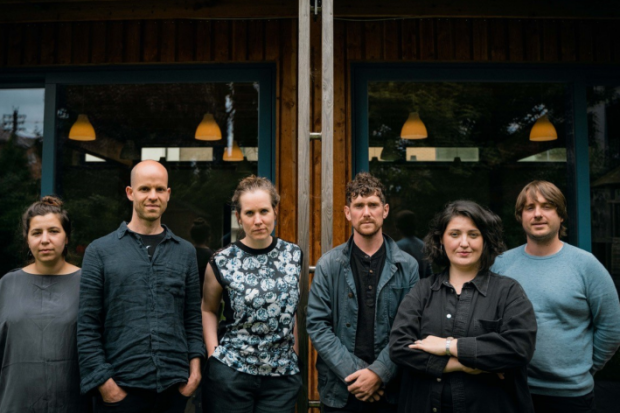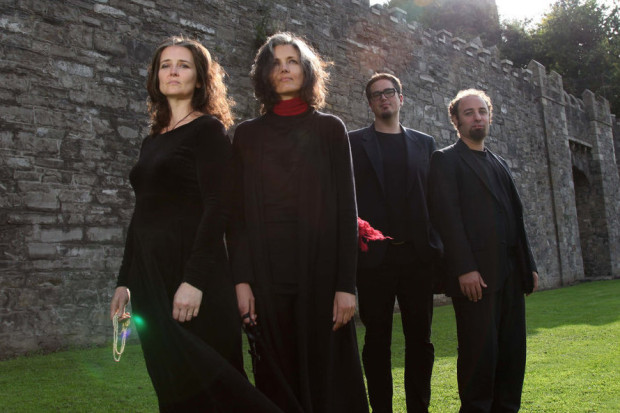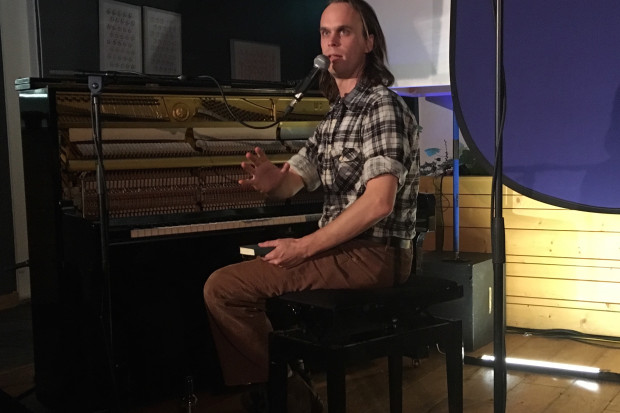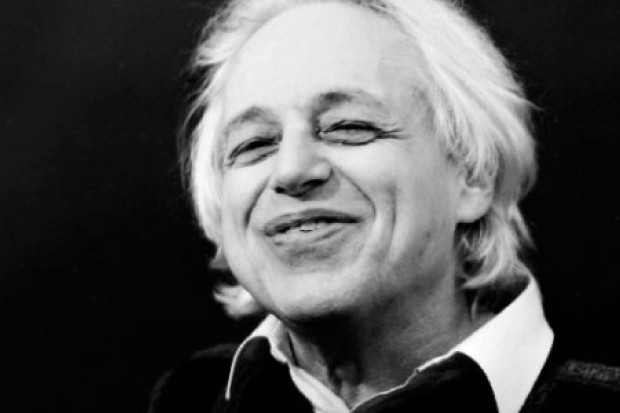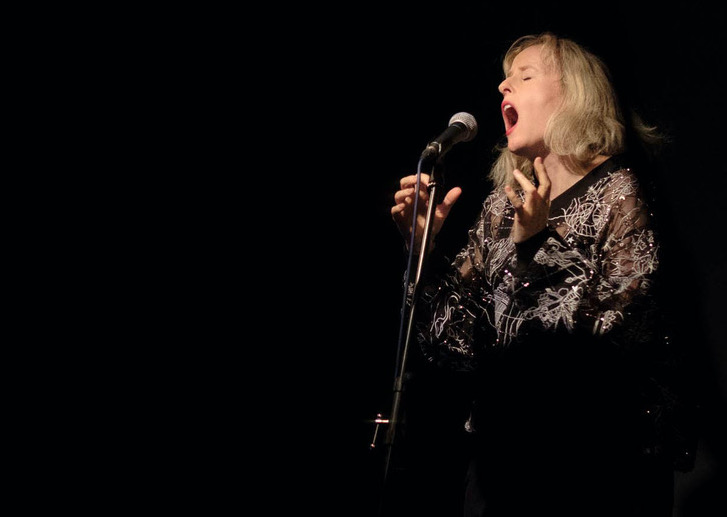
Jennifer Walshe (Photo: Dimitri Djuric)
'When we think about Ireland... what do we want included in the dataset?': Jennifer Walshe on the World Premiere of Her New Work 'Ireland: A Dataset'
Ireland: A Dataset was a winner of the Female Commissioning Scheme created by Sounding the Feminists last year, but composer Jennifer Walshe never expected to be working on it during a pandemic. Although based in London, she has stayed in Dublin since travelling over in the summer in order to avoid having to do two more weeks of quarantine. The new way of working has meant a reimagining of some aspects of the work, but also an opportunity to try new things.
Walshe describes the work as a ‘boisterous radio play’ because the original inspiration was old-style radio plays where all the performers are clustered around the one ribbon microphone, dipping in and out to say their lines.
In Ireland: A Dataset, the performers are the experimental vocal group Tonnta (Robbie Blake, Elizabeth Hilliard, Bláthnaid Conroy Murphy and Simon MacHale), and saxophonist Nick Roth. There will also be a video screen, overhead projectors and Walshe will be directing from a separate room. It’s a significant challenge not to be in the same room as the performers; sound engineer Úna Monaghan, too, is separated from them. Lighting designer Aedín Cosgrove will, however, be in the same space as the performers in the rearranged National Concert Hall.
The concept behind the work is to explore Irish identity, issues of nationalism, representation and exclusion, and how identity is created by whatever we decide to feed ourselves, or, as Walshe puts it, the ‘dataset’ we consume: ‘When we think about Ireland, we have to think, well, what do we want included in the dataset?’ she says.
An idea of a country is built from the films you watch about that country, the images that are presented to you … the literature… What I’m trying to show is the ridiculousness of how any single idea of what nationhood is is constructed… It’s through all these images, these bits of film and art and music and literature, this weird composite…
But we can change it, we can intervene, and AI [Artificial Intelligence] shows that very bluntly, because in order to train an AI you have to decide what’s the dataset that you’re going to train it on… you have to give the AI the images…. The dataset that we create for ourselves now about what Ireland is has the potential to be something different and richer.
Ireland: A Dataset has a rich variety of themes. ‘I think it’s something that’s accessible because a lot of it is very funny’, says Walshe. There is a fake pitch by a software company, a scene with Irish criminals planning a heist on Chicago’s World Fair in 1893, a video section of a neural network training itself on John Hinde postcards, and there’s also singing in sean-nós style.
As part of the work, Walshe asked PRISM (the Centre for Practice and Research in Science and Musicorganisation at the Royal Northern College of Music in Manchester) to feed Irish traditional sean-nós singing into an AI system to then produce an AI-generated version of sean-nós. The recordings Walshe used include Darach Ó Catháin, Róisín Elsafty, Treasa Ní Mhiolláin, Traolach Ó Conghaile and Mairéad Ní Mhaonaigh, but the results are radically different. She then asked Tonnta to learn the AI versions by ear so they could perform them.
I’m saying to the performers: ‘You have to stand up and sing the [AI] sean-nós with the same dignity and poise as if you’re from an alien culture and this is your folk culture, and you’re as proud of it and as protective of it, and you honour it in the same way.’
There’s also sections where the music performed is produced by AI versions of Enya, Riverdance and the Dubliners.
A number of Walshe’s previous works, such as Dordán and The Worlding, have explored and reimagined aspects of Irish identity, and she sees Ireland: A Dataset has occupying the same territory. The subject has always been a source of interest to her:
When I was a kid we lived away for a couple of years in Holland and when I returned to Ireland I was bullied for not having a pure Irish accent. Even as an eight-year-old I was very aware that there were specific ways you were supposed to talk… specific social cues … this idea of identity being something performed, something that’s constructed socially, artistically, politically. That is something that was very much lodged in my head from an early age.
Walshe’s work specialises in reimagining our concept of Ireland today, stretching the boundaries of how we conceive Irishness and culture. Does she feel she is getting closer to understanding where the national identity is today? In Ireland: A Dataset, she says, ‘I don’t come to any conclusion. Everyone’s going to have their own experience.’
The world premiere of Ireland: A Dataset will be live-streamed on Saturday 26 September at 8pm from the National Concert Hall, Dublin. Tickets are €7 and are available from dice.fm.
Published on 24 September 2020
Toner Quinn is Editor of the Journal of Music. His new book, What Ireland Can Teach the World About Music, is available here. Toner will be giving a lecture exploring some of the ideas in the book on Saturday 11 May 2024 at 3pm at Farmleigh House in Dublin. For booking, visit https://bit.ly/3x2yCL8.












